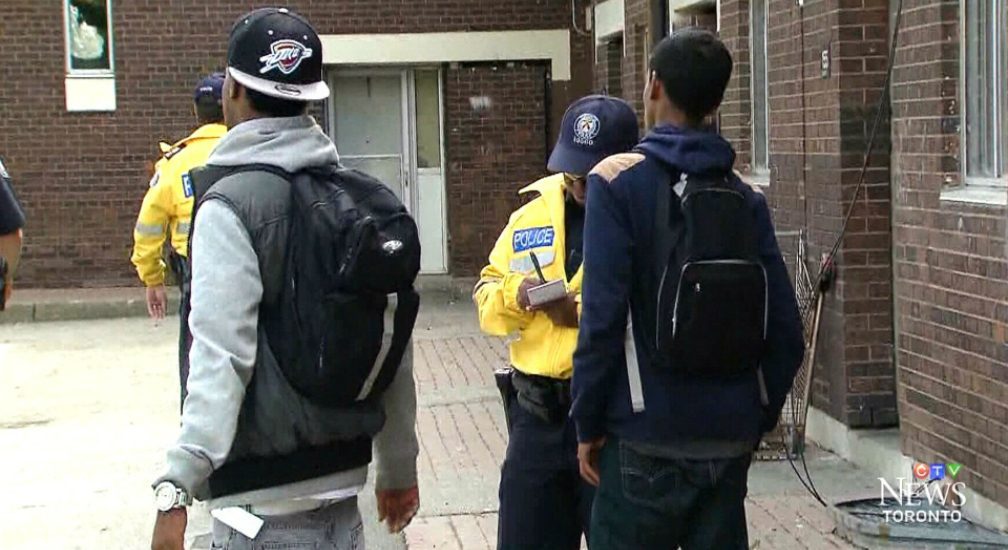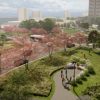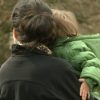
KJIPUKTUK (Halifax) – In my last article I wrote about about autistics who might wander off, and why tracking devices are problematic.
See also:” Safety for autistic people: “Wandering” and why tracking devices are not the answer
Now I will address the second most commonly discussed safety issue for autistics: police interactions, and ask some questions as to how these affect Black and Indigenous autistics.
Proper training for first responders
In Autism Nova Scotia’s Choosing Now report, under the section “Safety In Communities”, it says:
“It is important that individuals with autism learn to interact with first responders, and that first responders learn about and understand ASD so that they are prepared to identify and respond safely to situations that involve this population”.
The second part of that sentence is 100% accurate. First responders absolutely need better training for dealing with autistic people.
But to suggest that it’s equally important that autistic people need to learn how to interact with first responders places an unreasonable expectation on them. While there are certainly things that autistic people should know if they have to deal with police, it is far more important that the police understand autistic people.
In these kinds of situations, there is often a huge power imbalance, as the police are the ones who hold all the power. It’s up to them to understand the nuances and complexities of the situation.
Autism registries
One of the most problematic proposals by far is the Autism Nova Scotia Choosing nowreport’s suggestion to look at the feasibility of implementing an autism registry, similar to the one in Ottawa.
The Ottawa Police Service launched an autism registry in 2010, containing the name, address and a photo of an autistic child, as well as any other information that would be useful for fire, police and medical personnel. The registry also included potential triggers that might set off autistic people.
Ultimately, about 1200 people were listed with the registry. In January 2019, the registry was handed off to MedicAlert in an effort to make the information more widely available.
We need to seriously look at something that is being ignored in all these discussions
And that is that racism in police departments will likely make racialized people reluctant to participate. And who can blame them?
Autism and race:
Autistic activist Erin Human wrote an excellent piece about autism safety. She’s talking about it from an American perspective, of course, but her points can also apply to Canadian issues. When it comes to the proposed solutions for wandering and police interactions, she says:
“I think anyone who pauses for even one minute to consider how those solutions might work for a black or brown autistic person could see how deeply flawed they are. How would a black family in America be affected by being in an autism registry or GPS service with their local police department? What is the likelihood they would sign up for this voluntarily, given the downsides? Can you imagine a black autistic parent, or a Latinx immigrant family, being willing to be on such a registry?
And where to even begin with pushing more compliance training on non-white autistics. How well has compliance worked for black Americans historically in this country, when it comes to keeping them safe in police interactions? Eric Garner said it best: I can’t breathe.”
Now, let’s consider a proposed autism registry for Nova Scotia police forces in the context of the Wortley report on police street checks. The report concluded that Black men are 9.2 times more likely to be stopped than other people. Furthermore, as this CBC investigative piece shows Black and Indigenous people are more likely to be killed by the police in Canada.
In addition, studies show that in the United States at least 50% of people killed in police interactions were disabled, and this does not count those with mental health issues. And Black people are nearly three times more likely than white people to be killed by the police.
The Halifax Regional Police do not contest the statistics that show how racist bias manifests in the practice of street checks, yet in spite of a recent moratorium on the practice, they don’t plan on stopping it completely any time soon. Neither HRM RCMP nor the Halifax Regional Police are planning to issue an apology.
See also: No apologies from Halifax Regional Police and RCMP for damage done by racist street checks
Why would racialized autistics want to join a registry under these circumstances?
What safety issues should we really be talking about?
There are many other safety issues autistic people face, and we urgently need more Canadian data on these issues. Autistic people have very high rates of depression, anxiety, and suicide attempts, and many autistic children are frequently bullied at school. We are also much more likely to be victims of serious crime, and are at a high risk for abuse and neglect by caregivers.
Furthermore, as A4A Ontario’s recent human rights report shows, the use of restraints and isolation rooms at schools remains a major problem, with no serious regulation of the practice or willingness to outlaw it entirely. There is also the issue of practitioners of pseudoscience, such as chelation, stem-cell treatment, bleach enemas (Miracle Mineral Solution), hyperbaric oxygen therapy, and other so-called “biomedical interventions”.
I’ll leave the last word to Erin Human:
“Many of these risks to autistic children are much more prevalent and dangerous than the risk of elopement, and many continue to affect autistic people throughout our lives – as our high rates of depression and anxiety show. And yet, these are the dangers that are rarely discussed by parents and autism organizations. These risks do not seem to inspire as many panel discussions, safety curricula, training sessions, and special safety programs. Perhaps because, by and large, they require change on the parts of everyone else but the autistic child.
Even more crucially, the parent/expert safety programs that are most popular – the GPS trackers, registries, and compliance training – actually put autistic people at greater risk to our real threats: abuse, victimization, discrimination, isolation, and psychological trauma. Trackers, registries, and compliance make us less safe. Worst of all, they will have the strongest negative effects on the segment of the autistic population that is already the most vulnerable – you know, the ones we never talk about? – those of us who are not white.”
Alex Kronstein is the founder of Autistics United Nova Scotia, the local chapter of Autistics United Canada, a grassroots organization committed to raising the voices of Autistic people. He is also the host of the podcast The NeurodiveCast, and is a documentary filmmaker with several films currently in development.
With a special thanks to our generous donors who make publication of the Nova Scotia Advocate possible.
Subscribe to the Nova Scotia Advocate weekly digest and never miss an article again. It’s free!



